- Home
- Karen Kingsbury
Waiting for Morning Page 3
Waiting for Morning Read online
Page 3
Nick hesitated for a moment. There was something strange about the guy … still he was a customer. Nick grabbed a tumbler, filled it with ice and whiskey, and set it on the bar. “You know Rod?”
“Yeah … old friends, Rod and me.” The man’s hands trembled so badly that when he raised his glass he lost a few drops. Then he put the glass to his mouth and the drink disappeared. He set the glass down hard and with more confidence nodded toward the bottle. “Another.”
In the other room the opening theme to Rocky II began playing. Nick poured a second drink. And a third. And another and another and another.
By the time the sad-looking man at the bar was on his twelfth or thirteenth drink in less than two hours, Nick was beginning to get worried. If only Rod were there. He would know whether the man had passed his limit. As it was, Nick had no idea. He was new at The Office—working to pay tuition at California State University Northridge. He watched the man nervously. He’d never had to cut anyone off before. Besides, the guy was Rod’s friend. The last thing he wanted to do was offend the boss’s buddy.
Nick wandered into the lounge where Rocky II was down to the final fight scene. Over the past two hours, an occasional customer had wandered in for a quick drink, but for the most part it was just the lone customer at the bar. From across the room Nick heard the man tap his glass impatiently.
“Another. Get in here and give me another.”
His speech wasn’t slurred. But he was getting loud and overbearing. Nick sighed and returned to the bar. “You sure?”
The man narrowed his eyes. “Don’t get smart with me.”
Nick shrugged and reached for the bottle. “You might want to give it a rest, that’s all.” He nodded toward the television. “Catch the last part of Rocky or something.” He splashed house whiskey into a fresh glass of ice, and the man took it roughly. He downed it in three gulps and tossed several ten-dollar bills in Nick’s direction. He stood then, somewhat slowly, and reached into his pocket, fumbling for something. Nick was about to offer to help when the man stopped and stared at him, his expression suddenly vulnerable.
“You know—” his voice was low and Nick strained to hear him— “Rod should have been here.”
Nick counted the money and placed it in the cash register. “I told you, he’s sick.”
The man nodded and began fumbling in his pockets again. This time he found his keys, gripped them tightly in his fingers, and looked up. “Rod would have called her.”
Nick cocked his head back and studied the stranger. It almost looked like there were tears in his eyes. “Called who?”
“Carla … and then none of this ever would have happened.”
Nick leaned against the bar and crossed his arms. “Who’s Carla?”
The man’s expression hardened again. “Ah, forget it. You know, there ain’t nothing wrong with this world can’t be fixed with a drink or two.”
Nick studied his customer. “Whatever you say.”
The man stared at him through narrow eyes. “What would you know about it? You work back there, looking down at guys like me, guys who drink too much.”
“Hey, you okay, man?” Maybe, just maybe, this guy shouldn’t be driving. Even if he didn’t seem drunk.
The man clutched his keys tightly and shook his head. “Never mind me … get back to work.” He turned around and headed for the door.
“Hey, wait a minute. Answer me.” Nick came after him. “You okay? To drive, I mean?”
The man stopped and turned around. “Mind your own business.”
Suddenly Nick was sure. The man shouldn’t be driving. “Hey, buddy, why don’t you sit down for a minute. I’ll call you a cab. It’ll be on me.”
“You tryin’ to say I can’t drive myself home?”
“I’m saying I’ll hire you a cab, man. Either that or wait a while before you leave.”
A string of expletives split the air. “I’ll do whatever I want. And right now I’m going home.”
Nick wasn’t convinced, but the situation seemed out of his hands. His boss had laid out the definition of a drunk on the first day: if someone could talk fine and walk fine and you were still worried about them, ask. Yeah, well, Nick had asked. There was nothing more he could do.
The man reached for the barroom door handle and missed, grabbing a fistful of air and nearly falling onto the floor in the process. Then with a jolt he threw his body against the door and disappeared into the parking lot.
Nick cringed. Several minutes later he heard the roar of a truck and then the sound of squealing tires as someone pulled out of the parking lot onto Ventura Boulevard.
Tom glanced at the clock and grimaced. They’d gotten on the road later than he’d wanted, but they’d still be home before dinner. He glanced at his daughters and grinned.
They had been driving for nearly two hours, and still the girls had not run out of things to talk about. School was about to start and with the annual camping trip behind them, Jenny and Alicia clearly couldn’t wait to see their friends, get their class schedules, catch up on the latest teenage gossip. Tom glanced at them in the rearview mirror of the family’s Ford Explorer. Sweet, silly, precious girls.
He sighed and tried to memorize their giggling faces. They were fifteen and thirteen that year, and Tom knew his summers with them were numbered. His little girls were growing up.
Years ago when he and Hannah married, he had assumed they’d have sons. When instead they had Alicia and Jenny, Tom made the most of the situation. The girls went fishing with him every summer from the time they were able to walk. They tossed a football with him and played Little League ball as good as any boys in the neighborhood.
But they also climbed onto his lap at night, melting his heart with their silky lashes and wide-eyed adoration. He was their hero, and they were each his princess. For now he was still the only man in their hearts. He knew that would change soon. Precious little time remained before they would be gone with families of their own, so he treasured this trip even more than the others.
He had never known times like this with his father. His parents divorced when he was ten, and though his father promised to stay close, there was never enough time, and the roadway of his adolescence had been paved with unfulfilled intentions and missed opportunities. One boyhood memory stood clear in his mind. He was in Scouts, twelve years old, and it was the morning of the father-son Pinewood Derby. His father was dating a new woman that month and barely had time for Tom. Still, he promised he would meet him that day.
Tom could still see himself, a skinny, freckle-faced kid watching and waiting expectantly for his father that afternoon. One hour, then two. Other fathers offered to include him but Tom said no. His father would come, he was sure. He waited and waited until finally his friends and their fathers began to leave. As he climbed back onto his ten-speed and headed for home, angry tears trickled down his hot cheeks, and he made a promise to himself. He would never be an absent father. When he had children, he would be there for them.
Tom Ryan smiled softly at the noisy girls in the backseat. He had kept his promise.
He leaned back against the headrest and tuned them out, studying the heavy flow of L.A. traffic on Highway 101 through dark amber Ray Bans. He sighed. He already missed the serenity of the lake.
His mind drifted to Hannah. He’d missed her even more … her smile and her laughter, the way she felt in his arms. Amazing, really. After seventeen years of marriage they were still very much in love. He and Hannah were a rare breed anymore, even among their Christian friends. And to think he had almost married someone else. The idea seemed comical now.
He imagined Hannah’s reaction when he told her about Alicia and the rattlesnake. She’d probably go on about how the girl could have been bitten and how they were too far into the wilderness to find help and how maybe the camping trip was too dangerous after all.
He grinned. Hannah wasn’t one for camping or threading—impaling, she called it—worms on fishhooks or get
ting her fingernails dirty. She was especially afraid of snakes. But Alicia hadn’t really been in that much danger. Besides, he was a doctor, a pediatrician. The snake had only added to their adventure. As their annual camping trip went, this was one he and the girls would remember forever.
He maneuvered the Explorer into the right lane and took the Fallbrook exit. A quick stop at the bottom of the off-ramp, and he turned the vehicle left, under the freeway. Typically there would be a wait at the intersection of Fallbrook and Ventura Boulevard, but this time the light was green.
Good. Tom smiled. Home in ten minutes. He pulled into the intersection long before the light turned yellow.
Only Jenny saw it coming. There was no time to scream, no time to warn the others like she had earlier along the path at Cachuma Lake. One moment she was looking at Alicia, asking her about Mrs. Watson’s English class, and the next, in a mere fraction of an instant, she saw a white locomotive coming straight at them, inches from Alicia’s face.
There was a horrific jolt and the deafening sound of twisting, sparking metal and shattering glass. Jenny screamed, but it was too late. The Explorer took to the air like a child’s toy spinning wildly and coming to rest wrapped around a telephone pole a hundred feet away.
Then there was nothing but dark, deadly silence.
Four
How like a widow is she, who once was great among the nations!
LAMENTATIONS 1:1B
Sal’s Diner had been in business at the corner of Ventura Boulevard and Fallbrook for twenty-five years, and Rae McDermott had worked the counter faithfully for the last fifteen. That summer afternoon she was thankful the lunch crowd had been light. Another half hour and she could leave early. She needed to get some milk at the market before picking up the baby at the sitter’s house. She made a mental shopping list as she ran a worn, bleach-soaked dishrag over the counter.
With a sigh, she stretched, then balled up her fists and pressed them into the small of her back. As she did so she glanced outside at the traffic on Ventura … and frowned. A white pickup truck, headed for the intersection, was speeding. Rae felt a rush of dread. The light was red, but the driver showed no signs of stopping.
She moved across the diner, drawn to the scene, desperately hoping the truck would stop. Suddenly, from south of the boulevard, an Explorer came into view on Fallbrook.
“Dear God …”
The scene seemed to unfold in slow motion, and there was nothing Rae could do to stop it. The two vehicles careened toward the intersection, then collided. The impact was so explosive it was surreal, like something from a violent action movie. The Explorer spun off the ground in a cloud of dust and glass and shredded metal, and Rae watched it sail across the street and wrap around a utility pole a hundred feet away.
“Dear God,” she whispered again, and dashed across the diner, grabbed the telephone, and dialed 9-1-1.
Sergeant John Miller of the Los Angeles Police Department was a veteran in handling traffic accidents. He had worked traffic for twenty-three years and had seen hundreds of dead bodies. Most of the victims had never seen the crash coming. They were getting off work or heading home from the market with no idea they were living their final moments. Too often Sgt. Miller had lifted a dead child from the backseat of a car or pulled a dead mother out of a mangled vehicle while her baby cried, unaware of its loss. More times than he could remember, he had watched paramedics perform CPR while someone’s father or grandfather or sister or niece bled to death on a grease-covered, trash-strewn piece of roadway.
The temptation was to become callous. Survival, his peers called it. Form a tough veneer, a carefully maintained wall between his emotions and the reality of working traffic in a city like Los Angeles. That’s how most of the officers he knew coped with their own vulnerability.
But Miller was different. He was a Christian, a born-again believer who had come to understand mangled vehicles and mutilated bodies as part of a fallen world. Often he reassured himself with Scripture … “I know the number of your days, says the Lord.…” “What is your life? You are but a mist that appears for a little while …”
No, he hadn’t grown callous, but neither did he fear the dangers that lurked on L.A.’s busy streets. Nothing happened outside God’s control, and that was all that mattered.
In fact, he believed his presence at various accidents was often divinely appointed. Sometimes, very quietly, he would pray for—or even with—the victim. Once he had held the hand of a man who was bleeding to death as rescue workers used the jaws-of-life to extricate him from his car.
He’d talked to the man through a hole in the shattered windshield. “Do you believe in Jesus?” He volunteered to keep the victim alert throughout the rescue. He wanted to be sure the man would spend eternity with God.
“I know of him.”
Father, give me the words… “He is the Son of God, God in the flesh. He died to give you life, and he wants you to have that salvation now. It’s yours for the asking.”
The other rescue workers continued their noisy efforts, unaware of the dialogue between him and the dying man. The victim had struggled then, choking on his blood. But his words had been vividly clear. “I want that. Yes, please pray for me.”
Sgt. Miller did as the man asked. Rescue efforts had been futile, and the man was listed as DOA at the hospital. But the sergeant knew better. The man was very much alive, and he looked forward to seeing him again in heaven.
The very idea of sharing the grace of Jesus Christ with people in their dying moments made him thankful for his position with the LAPD. He likened it to the parable Jesus told of the workers who worked only a short while yet received an entire day’s wage. The sergeant saw himself as the man who introduced Jesus to those who only believed a short while yet shared the same salvation as those who had known Christ all their lives. Physical death was a part of life. Because of his work, Sgt. Miller understood that better than most. All the more reason to cling to Jesus, he figured. Death would not have the final say.
Sgt. Miller received the call at 4:25 that afternoon: Accident with multiple injuries at Ventura and Fallbrook. Two fire engines, three ambulances, and four paramedics were on the way, as were two LAPD squad cars. He grabbed his keys and an accident notebook and moved swiftly through the office, out the back door toward his unmarked car. It was his job to orchestrate the roles of each emergency worker, gather witness information, and make sure protocol was followed perfectly in case an arrest was in order.
As always, he asked God to use him mightily in the next few hours and to comfort the victims and their family members.
“It doesn’t matter what task you have for me out there, Lord,” he whispered as he flipped on his siren. “Just use me.”
Brian Wesley opened his eyes. Was he dreaming?
His head hurt.… He looked around and saw that his windshield was shattered. Shards of glass covered his legs and the seat next to him, and he realized he must have been in some kind of accident. He ran his fingers tentatively over his arms and legs.… Nothing seemed to be broken. He rubbed his eyes and shook his head, trying to clear his vision. It was then that he noticed the front end of his truck was missing.
He gazed across the intersection and saw another vehicle wrapped around a utility pole. People were all around it, working to get inside.
Brian’s blood ran cold. This was no dream.
He had gotten drunk and now he’d hit somebody.
“Oh, man, please be okay.” His arms and legs shook, racked with the beginning of a raw fear more potent than any he had known before. He tried to get out, but his truck door was jammed. He turned around, kicking it open with his heavy work boots. Eyes wide, heart and head pounding, Brian walked across the intersection.
Today is the first day of the rest of your life …
The cliché floated through his mind—and chilled him to the bone.
Two motorists had stopped and were working alongside a woman in an apron. All were trying to free
the people inside the vehicle. As Brian drew closer, he saw them lean inside, then together they lifted the limp, bloodied body of a teenage girl from the backseat and lay her gently on the grassy curbside. The woman with the apron covered the girl’s legs with a blanket.
“Oh, no …” It took Brian a second to realize the whining voice was his.
In the distance, sirens grew louder with each passing moment.
Brian tried to swallow, but his throat was so dry it almost choked him. “Hey, man, is she … is she all r-r-r-right?” He was consumed with dread, and he felt his knees start to shake again. The woman in the apron looked up at him, studied him for a moment, and then turned back to the girl. The two men were trying to find her pulse, and one of them began giving her mouth-to-mouth resuscitation.
The sirens were very close now, and Brian could see several emergency vehicles speeding into view. Relief swept him. Hurry! Hurry! She needs you! He couldn’t take his eyes from the girl lying on the curb. The others continued working on her without acknowledging him. Brian saw the woman in the apron begin to cry and the men sit back on their heels. They were giving up.
“W-w-w-wait … she n-n-n-needs help, man!” He moved toward the girl, but the woman in the apron rose to her feet.
“Get back!” She spat the words at him. “You’ve done enough!”
One of the men came to put a hand on her arm. “Come on. Let’s check the others.” They studied Brian for an instant, disgust clear on their faces, then turned to what remained of the Explorer.
Brian saw the girl’s face then.… It was a pretty face, framed by honey-colored brown hair. But it was a lifeless face. Even he could see that. He sank to his knees ten feet from where the girl lay—ten feet from the body of a girl who would never again hold her mother’s hand or kiss her daddy good-night or dance across a living room floor.…
A wail erupted from somewhere deep within him. He willed himself dead in her place, willed anything that might breathe life into her once more. Then his wailing became one word, so weighted with regret that he felt it would consume him: “Noooo!”

 Shades of Blue
Shades of Blue Divine
Divine Forever
Forever Summer
Summer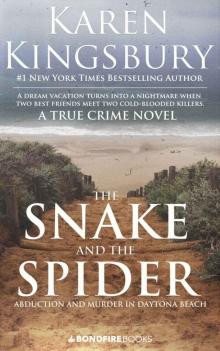 The Snake and the Spider
The Snake and the Spider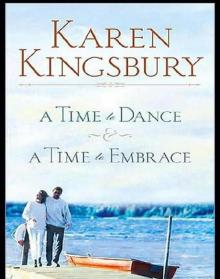 A Time to Dance
A Time to Dance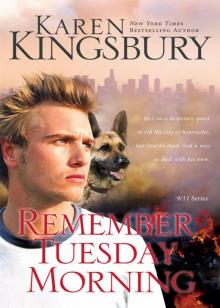 Remember Tuesday Morning
Remember Tuesday Morning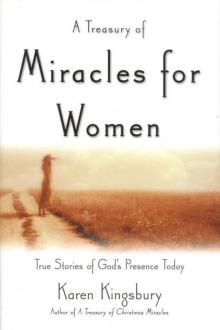 A Treasury of Miracles for Women
A Treasury of Miracles for Women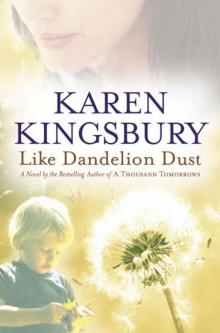 Like Dandelion Dust
Like Dandelion Dust Brush of Wings
Brush of Wings The Tuesday Morning Collection
The Tuesday Morning Collection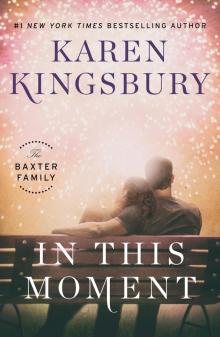 A Moment of Weakness
A Moment of Weakness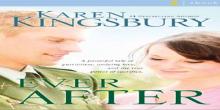 Ever After
Ever After This Side of Heaven
This Side of Heaven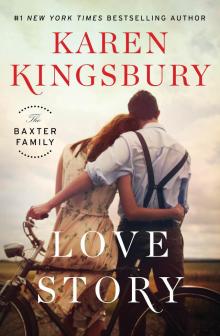 Unlocked: A Love Story
Unlocked: A Love Story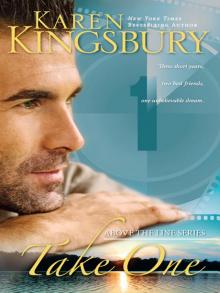 Take One
Take One The Red Gloves Collection
The Red Gloves Collection To the Moon and Back
To the Moon and Back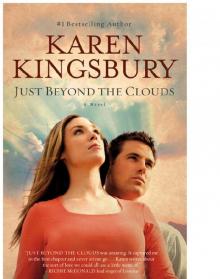 Just Beyond the Clouds
Just Beyond the Clouds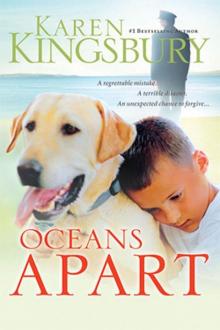 Oceans Apart
Oceans Apart A Baxter Family Christmas
A Baxter Family Christmas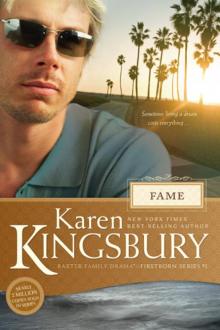 Fame
Fame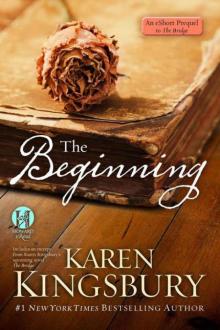 The Beginning
The Beginning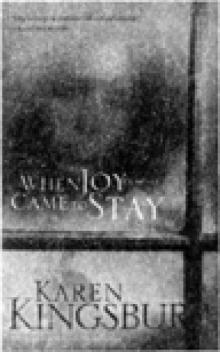 On Every Side
On Every Side Gideon's Gift
Gideon's Gift Forgiven
Forgiven A Kingsbury Collection
A Kingsbury Collection Found
Found Family
Family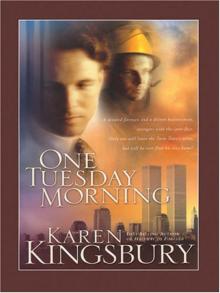 One Tuesday Morning
One Tuesday Morning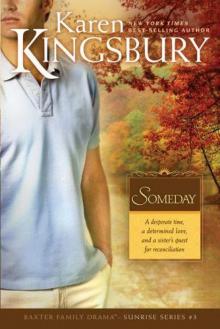 Someday
Someday Take Three
Take Three Beyond Tuesday Morning
Beyond Tuesday Morning Unlocked
Unlocked Take Four
Take Four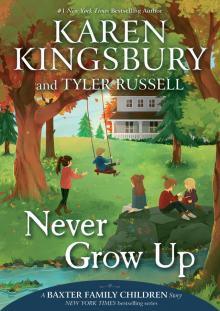 Never Grow Up
Never Grow Up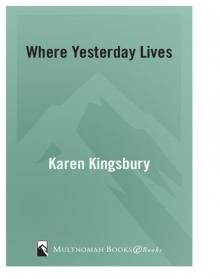 Where Yesterday Lives
Where Yesterday Lives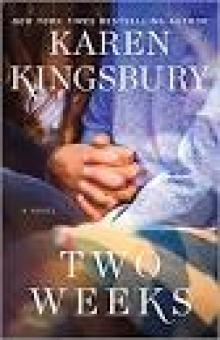 Two Weeks
Two Weeks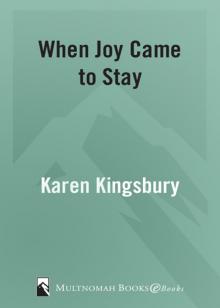 When Joy Came to Stay
When Joy Came to Stay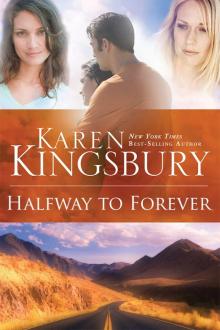 Halfway to Forever
Halfway to Forever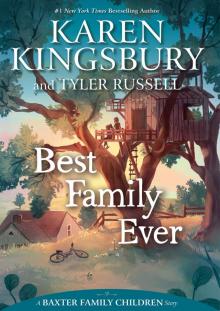 Best Family Ever
Best Family Ever Sunrise
Sunrise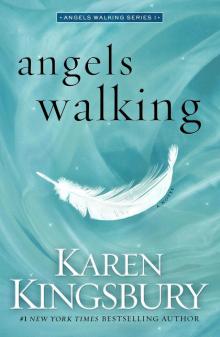 Angels Walking
Angels Walking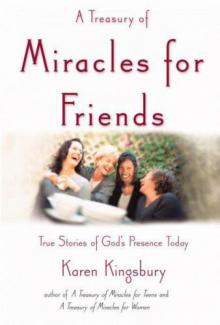 A Treasury of Miracles for Friends
A Treasury of Miracles for Friends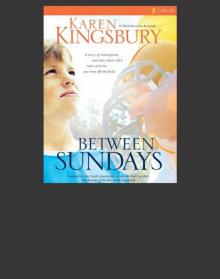 Between Sundays
Between Sundays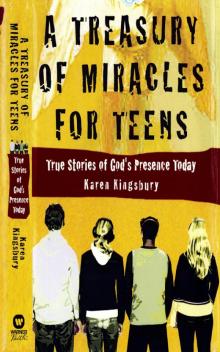 A Treasury of Miracles for Teens
A Treasury of Miracles for Teens A Thousand Tomorrows / Just Beyond the Clouds
A Thousand Tomorrows / Just Beyond the Clouds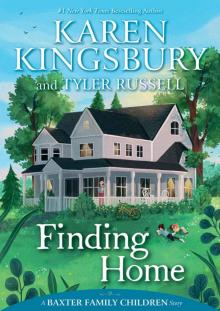 Finding Home (A Baxter Family Children Story Book 2)
Finding Home (A Baxter Family Children Story Book 2)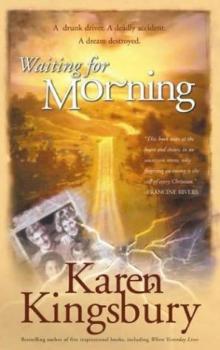 Waiting for Morning
Waiting for Morning Chasing Sunsets
Chasing Sunsets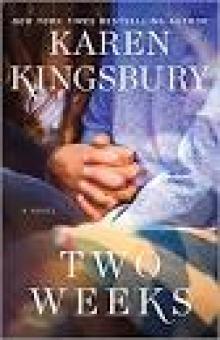 Two Weeks: A Novel (The Baxter Family)
Two Weeks: A Novel (The Baxter Family) Coming Home
Coming Home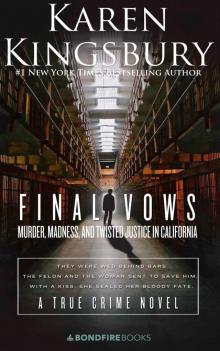 Final Vows
Final Vows Sunset
Sunset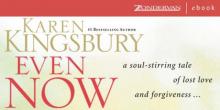 Even Now
Even Now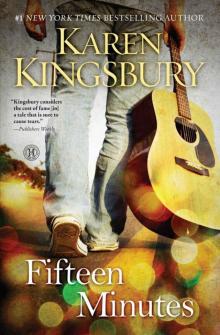 Fifteen Minutes: A Novel
Fifteen Minutes: A Novel Love Story
Love Story The Bridge: A Novel
The Bridge: A Novel One Tuesday Morning & Beyond Tuesday Morning Compilation
One Tuesday Morning & Beyond Tuesday Morning Compilation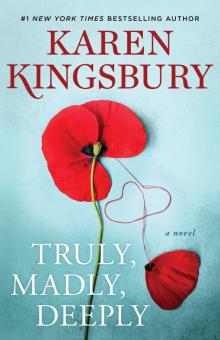 Truly, Madly, Deeply
Truly, Madly, Deeply The Chance: A Novel
The Chance: A Novel A Brush of Wings
A Brush of Wings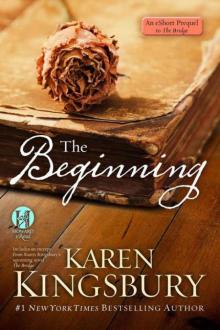 The Beginning: An eShort Prequel to the Bridge
The Beginning: An eShort Prequel to the Bridge A Thousand Tomorrows & Just Beyond The Clouds Omnibus
A Thousand Tomorrows & Just Beyond The Clouds Omnibus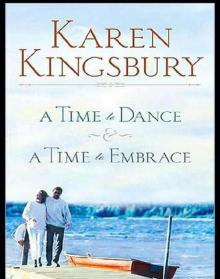 A Time to Dance/A Time to Embrace
A Time to Dance/A Time to Embrace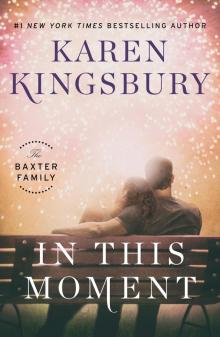 In This Moment
In This Moment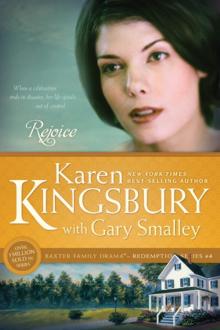 Rejoice
Rejoice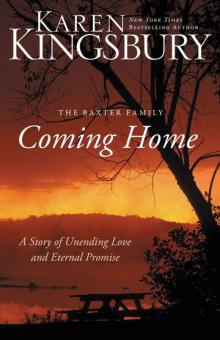 Coming Home: A Story of Undying Hope
Coming Home: A Story of Undying Hope